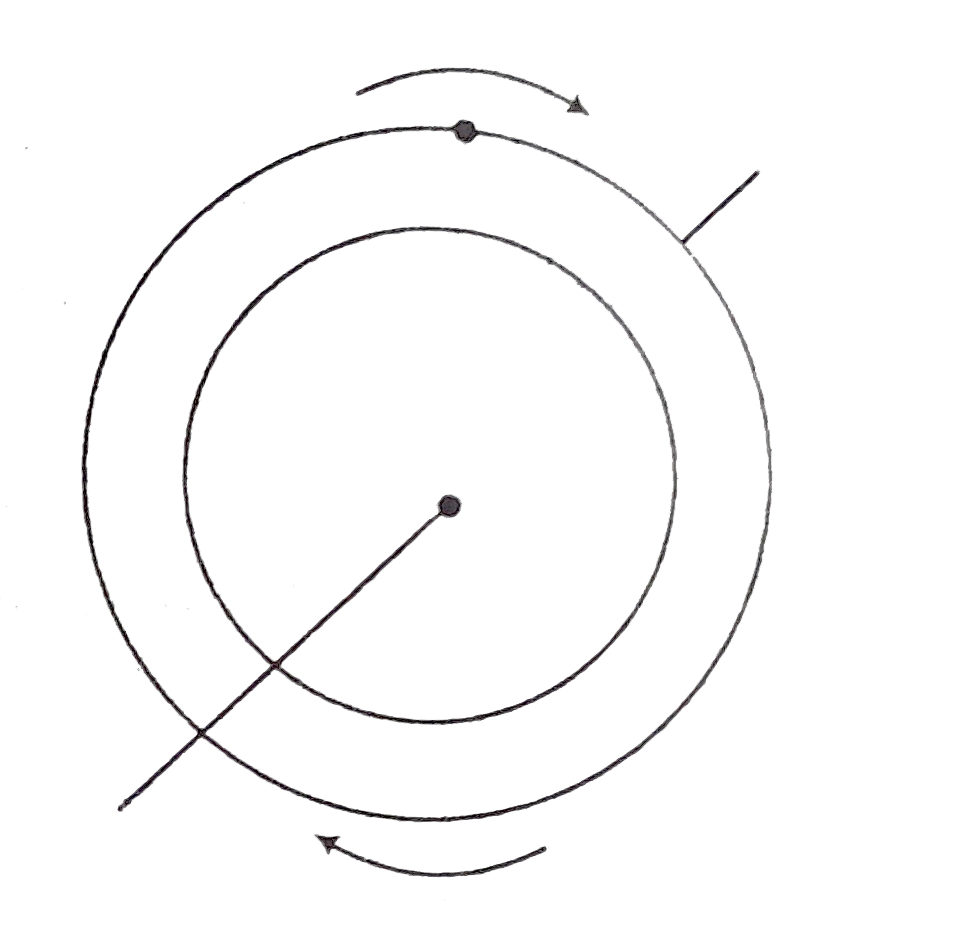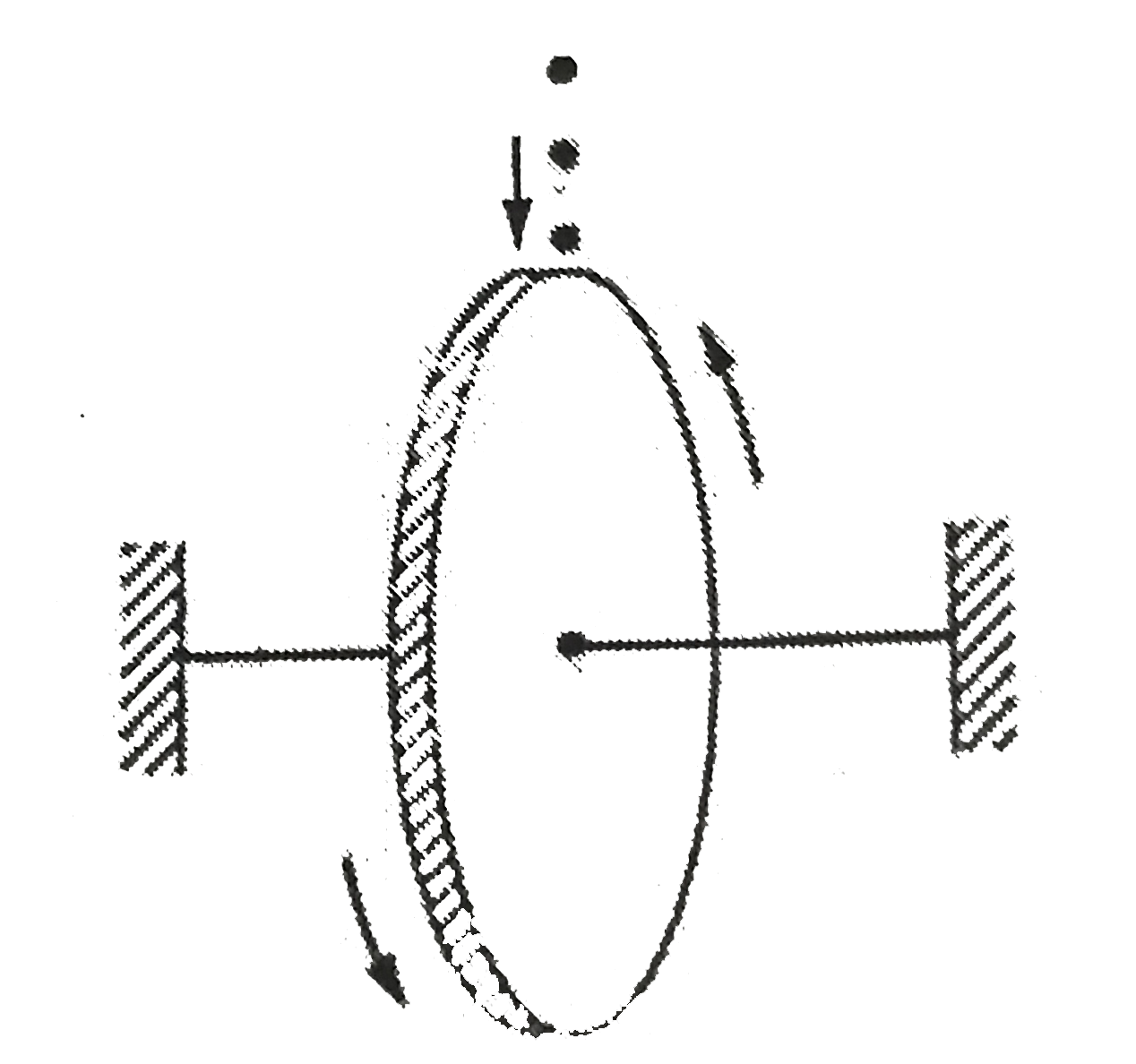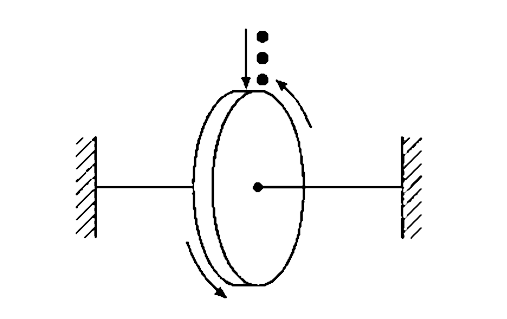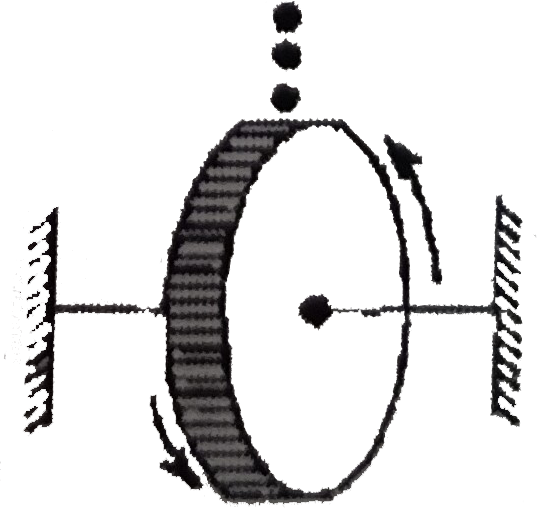A disc of mass 50 kg rotates freely about a fixed horizontal axis through its centre. A thin cotton pad fixed to its rim can absorb water. Water drips onto the pad at the rate of 25 grams per sec, falling along a line passing through the horizontal axis. The angular velocity of the disc will get reduced to one fourth of its initial value time ____x103 s.

The correct Answer is:3
Topper's Solved these Questions
- BOOK - AAKASH SERIESCHAPTER - ROTATIONAL DYNAMICS EXERCISE - PRACTICE SHEET (Exercise - IV) (LEVEL - I Straight Objective Type Questions)26videos
ROTATIONAL DYNAMICS
- BOOK - AAKASH SERIESCHAPTER - ROTATIONAL DYNAMICS EXERCISE - PRACTICE SHEET (Exercise - IV) (LEVEL - II Straight Objective Type Questions)4videos
ROTATIONAL DYNAMICS
- BOOK - AAKASH SERIESCHAPTER - ROTATIONAL DYNAMICS EXERCISE - PRACTICE SHEET (Exercise - III) (LEVEL - II More than One correct answer Type Questions)5videos
ROTATIONAL DYNAMICS
- BOOK - AAKASH SERIESCHAPTER - RIVISION EXERCISEEXERCISE - MOTION IN A PLANE (LAMNI.S THEOREM)6videos
RIVISION EXERCISE
- BOOK - AAKASH SERIESCHAPTER - ROTATIONAL MECHANICSEXERCISE - Questions for Descriptive Answers20videos
ROTATIONAL MECHANICS
Similar Questions
A disc is free to rotate about a smooth horizontal axis passing through its centre of mass. A particle is fixed at the top of the disc. A slight push is given to the disc and it starts rotating. During the process.
 View Solution
View SolutionA horizontal disc is rotating about a vertical axis passing through its centre. If an insect moves from centre to rim then the angular momentum of the system
View Solution
Knowledge Check
- Question 1 - Select One

A disc of mass m0 rotates freely about a fixed horizontal axis passing through its centre. A thin cotton pad is fixed to its rim, which can absorb water. The mass of water dripping onto the pad per unit time is μ. After what time will the angular velocity of the disc get reduced to half its initial value?A2m0μB3m0μCm0μDm02μ - Question 2 - Select One
A disc of mass m0 rotates freely about a fixed horizontal axis through its centre. A thin cotton pad is fixed to its rim, which can absorb water. The mass of water dripping onto the pad is n per second: After what time will the angular velocity of the disc get reduced to half of its initial value ?
 A2m0μB3m0μCm0μDm02μ
A2m0μB3m0μCm0μDm02μ - Question 3 - Select One
A disc of mass m0 rotates freely about a fixed horizontal axis through its center. A thin cotton pad is fixed to its rim, which can absorb water. The mass of water dripping onto the pad is μ per second. After what time will the angular velocity of the disc get reduced to half of its initial value:
 A2m0μB3m0μCm0μDm02μ
A2m0μB3m0μCm0μDm02μ
A horizontal disc is rotating about a vertical axis passing through its centre. If an insect moves from centre to rim then the angular momentum of the system
View SolutionA horizontal disc is rotating about a vertical axis passing through its centre. If an insect moves from centre to rim then the angular momentum of the system
View SolutionA horizontal disc rotates freely about a vertical axis through its centre. A ring, having the same mass and radius as the disc, is now gently placed on the disc. After some time, the two rotate with a common angular velocity, then
View SolutionA disc is free to rotate about a smooth horizontal axis passing through its centre of mass. A particle is fixed at the top of the disc. A slight push is given to the disc and it starts rotating. During the process.
 View Solution
View SolutionA disc of radius 10 cm can rotate about an axis passing through its centre and perpendicular to its plane. A force of 10 N is applied along the tangent in the plane of the disc. If the moment of inertia of the disc about its centre is 5kgm2, then the increase in the angular velocity of the disc in 10 s will be
View Solution
